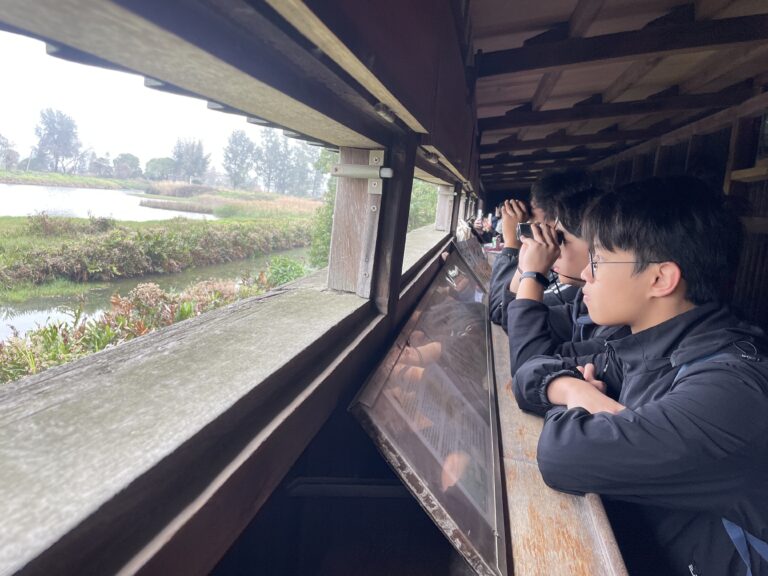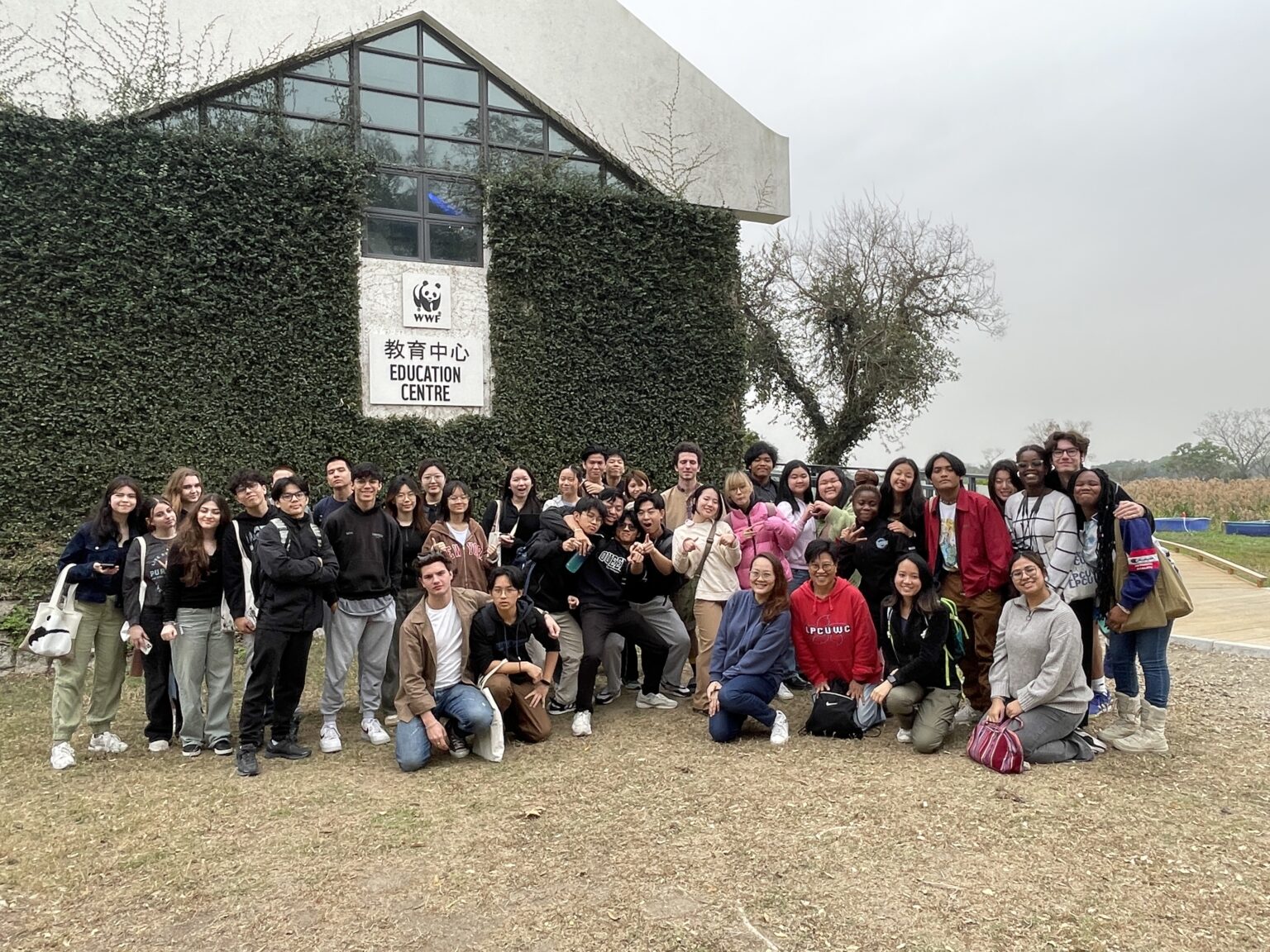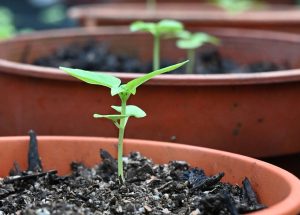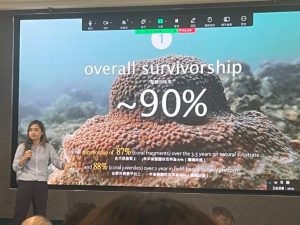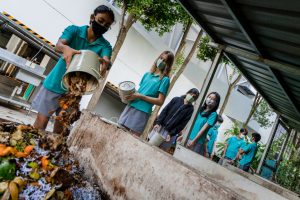Student field trip to learn about biodiversity
All of Li Po Chun’s Year One Environmental Systems and Societies (ESS) students took part in a field trip to the Mai Po Natural Reserve in Hong Kong. They had an experience of the daily work of an ecologist and learned about the value and importance of local biodiversity through wildlife surveys and scientific measures. They measured the physical environment and water quality of sites of reed beds and mangroves with scientific equipment and observed the plankton. They also understood the operation of traditional shrimp farming “Gei Wai” and fish ponds in Hong Kong, demonstrating how sustainable aquatic food production can be achieved.
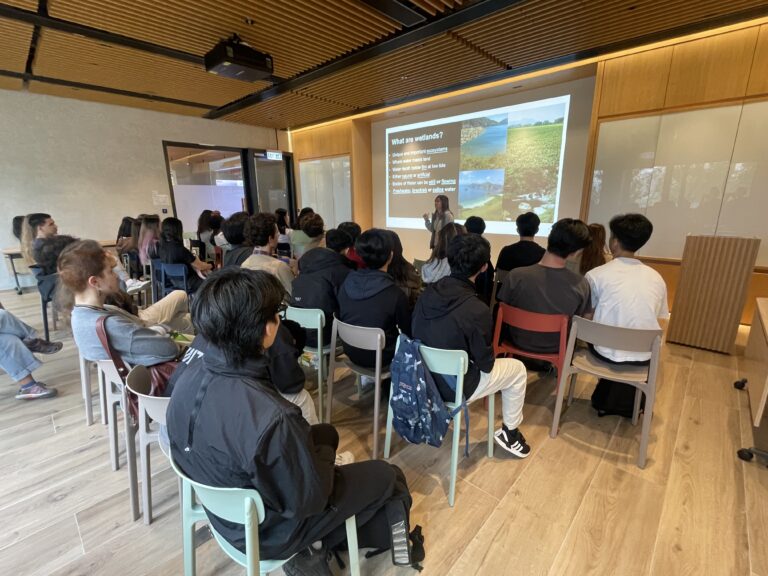
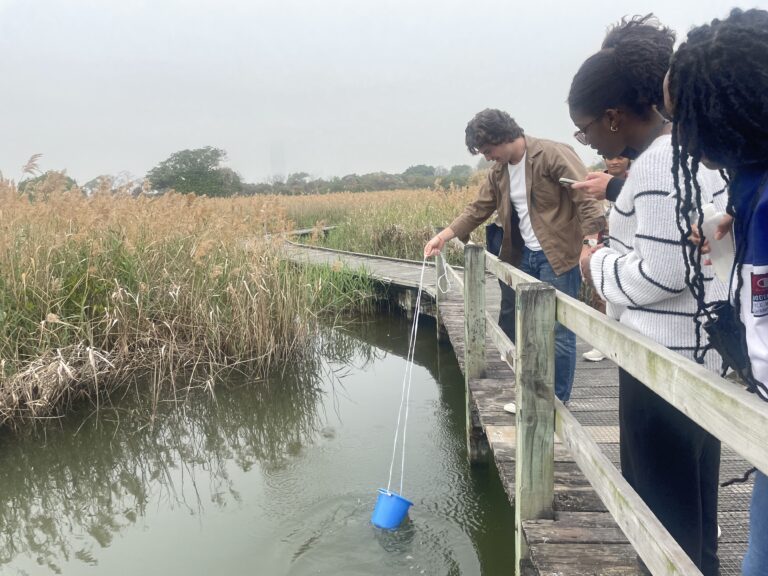
Mai Po Natural Reserve, located in Hong Kong, is an internationally recognized protected area of great ecological significance under the Ramsar Convention on Wetlands. The reserve encompasses a diverse range of habitats, including wetlands, mangroves, mudflats, and marshes, providing crucial breeding and resting grounds for over 60,000 migratory waterbirds each year. Its conservation efforts contribute to the preservation of global biodiversity and support the sustainable management of wetland ecosystems worldwide.
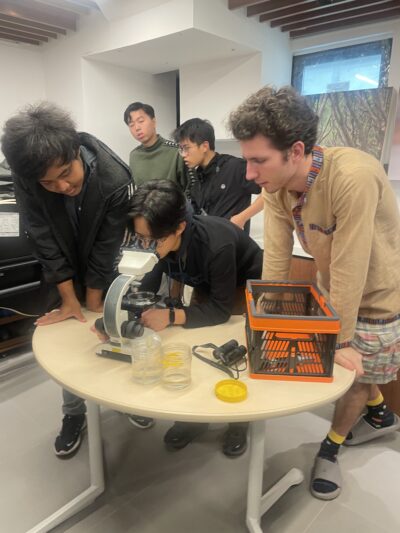
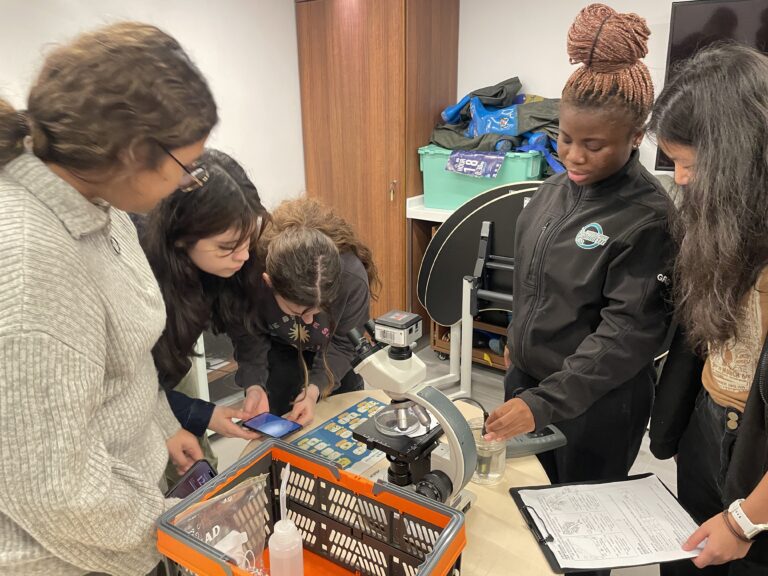
This field trip fosters a deep appreciation for the delicate balance between human activities and the environment, empowering students to become environmentally conscious global citizens who actively contribute to the preservation and sustainable management of natural resources.
